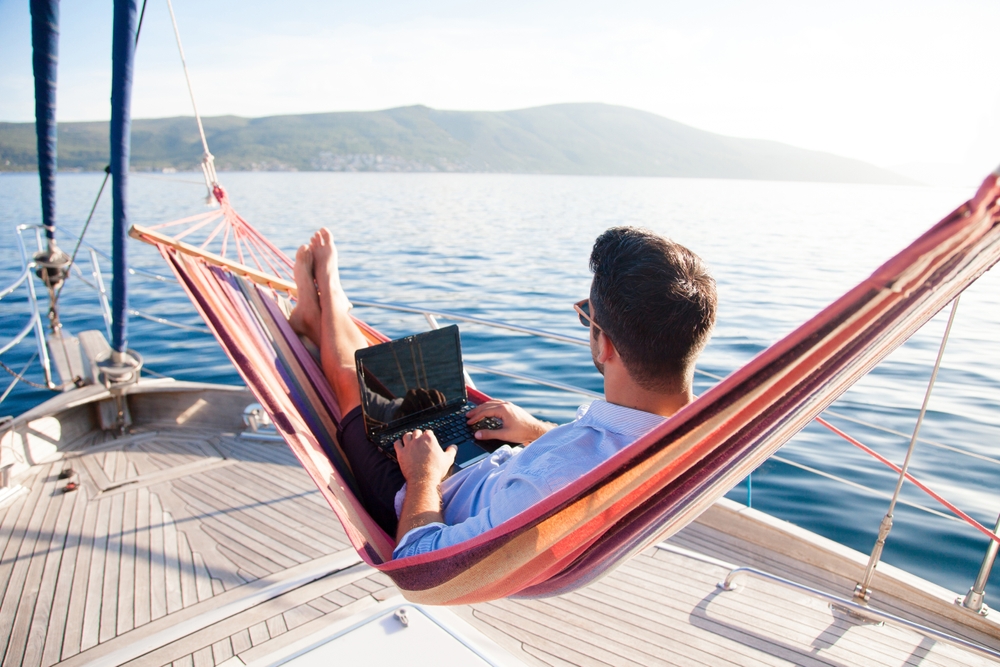January, a time of symbolic fresh starts, is fast approaching, and it’s the perfect time for a physical and mental reset.
Choosing a destination for wellness isn’t just about somewhere you can relax or eat healthily; it’s about choosing an environment that offers real health benefits that are supported by science.
Travel expert Justin Chapman at Go2Africa, and Dr Sham Singh, a psychiatrist with a holistic approach to mental health, explain why travel is so important for wellness, and reveal the best wellness destinations for January based on science – so you can embrace a ‘new year new me’ with a focus on true wellness, and continue the benefits when you return home.
Why travel is important for wellness – SOUTH AFRICA
The diverse landscapes and warm weather make South Africa a perfect destination for wellness experiences in nature. January is the best time to visit Cape Town for any outdoor activity, from hikes up Table Mountain, to swimming and beach yoga sessions on the powder-soft sand beaches of Clifton and Camp’s Bay.
Spending time in biodiverse environments, particularly when being active or spending time near water, has been associated with reduced stress and improved mood. Dr Singh says, “Physical activities such as walking, hiking, and exploring cities on foot contribute to physical benefits with the release of endorphins, which elevate mood and lower the levels of lethargy.”
“Secondly, walking along shores or even swimming in the ocean would increase cardiovascular health, dispel tension, and generally raise well-being-thus, the sea is a natural therapy for both body and mind”, he adds.
Why travel is important for wellness – BHUTAN
Bhutan is often called the “Land of Happiness”. The government of Bhutan is guided by the philosophy of Gross National Happiness, and they have recently announced plans to build a “mindfulness city”, that will have green spaces for relaxation and meditation, reduce emissions by promoting walking and cycling, and eco-tourism.

Bhutan’s lush landscapes and serene atmosphere promote deep relaxation and reflection, with many retreats emphasising mindfulness and limiting digital distractions to allow you to truly connect with your surroundings, and yourself – and you can also calm the mind and improve your focus by practicing meditation and breathing exercises at local monasteries.
“A digital detox considerably improves one’s mental health in that one is disconnected from the constant notifications, comparisons, and pressures that many times come along with digital life.”, says Dr Singh. “The mind is cleared, sleep is improved, and it’s more mindful of its surroundings, as one becomes less concerned about technology … even a short time span, like 24 hours, may reboot our focus level and level of stress. For those feeling overwhelmed, a several-day detox, or one that lasts up to a week, may allow for deeper benefits-such as a fuller reset-re-engaging us with ourselves and a sense of balance and clarity of mind.”
Why travel is important for wellness – ICELAND
Iceland is famous for its geothermal waters, and the mineral-rich Blue Lagoon hot springs, in the south west of the country, are renowned for their restorative properties, improving circulation, reducing muscle tension, and leading to deep relaxation. But at the other end of the thermometer, cold water swimming in somewhere like the Silfra fissure in Thingvellir National Park, has some serious mental and physical health benefits. Cold water immersion boosts mood, reduces stress, raises dopamine levels, and can also reduce symptoms of anxiety and depression.
Dr Singh says, “On a physical level, exposure to cold can stimulate circulation, reduce inflammation, and fortify the immune system. Cold therapy mentally stimulates the secretion of endorphins-commonly referred to as “feel-good” hormones-and can provide a feeling of mastery and hardiness once the initial pain has been overcome.”
He explains, “A state of shock after being exposed to cold lends a new sense of clarity and awareness that often reduces stress and helps regulate mood. Prolonged cold therapy can increase, over time, our hardiness and tolerance for stress, be that physical or mental, and provide long-term positive effects on the emotional resilience of a person.”
Why travel is important for wellness – JAPAN
Japan offers an immersive experience into traditional wellness practices, with onsen culture and forest bathing. ‘Shinrin-yoku’, forest bathing, involves slow, mindful walks in the forest, and studies have shown that it can reduce heart rate, lower cortisol, and enhance immune function.

An onsen is a hot spring, often in remote, scenic areas, but it’s more than just a dip in hot water – it is a ceremonial experience, that has been an important part of Japanese wellness for centuries. It begins with pre-bath washing, and respect for peace and tranquillity is essential while you relax in the mineral-rich waters, where you can feel connected to nature, embracing mindfulness. Not only do you enjoy a relaxing and therapeutic experience with these practices, but also you also feel the benefits of immersing yourself in the country’s rich cultural traditions.
“Many times with cultural immersion comes that sense of community and of connecting with other people, which in itself can reduce feelings of isolation and allow for more empathy. This empathy, in turn, may grant us more insight into ourselves and perhaps even the new practices that we will carry on to bring greater joy into our lives.”, says Dr Singh.
Why travel is important for wellness – COSTA RICA
In Costa Rica is one of the world’s Blue Zones – the Nicoya Peninsula – where residents live significantly longer lives. It’s known for lush jungle and beautiful beaches, which contribute to reduced cortisol levels, improved mood, and lower stress levels, as well as the mindful eating, physical wellbeing, connection with nature, and ‘pura vida’ – pure life, the philosophy of simplicity and enjoyment of life – that make it a Blue Zone.
“Most people react to green spaces by automatically lowering cortisol, the hormone associated with stress. This physiological shift allows us to be at ease and helps reset our mental states, relieving us from the fast pace and demands of daily life.”, explains Dr Singh. “Nature gives an avenue for mindfulness; being in a natural setting provides one with an opportunity for slowing down and thus being present-a self-soothing thing that should alleviate symptoms of anxiety to a great extent.”
WHY TRAVEL IS SO IMPORTANT FOR WELLNESS & WELLBEING
Travel is particularly effective at stimulating the brains reward system, and wellness destinations that offer a combination of natural beauty, exhilarating activities, immersion into a different culture, with longer hours of daylight and increase exposure to sun, are the perfect ways to boost dopamine and serotonin levels.

Taking a break from everyday life and experiencing a new environment allows you to recharge your mental battery, and allow your mind to relax and recover. Regular breaks are essential in preventing burnout, restoring balance and reducing stress that’s causing you to feel so emotionally, physically, and mentally exhausted.
Dr Singh says, “The power of travel touches our health, uniting physical, mental, and emotional aspects of the self. The psychiatric advantage is the disruption of routine such that it challenges the refreshment of the brain. For example, new sights, sounds, and cultures create stress in those parts of the brain related to cognitive flexibility and neuroplasticity. Countless individuals detail heightened well-being and decreased anxiety when traveling, which can often be associated with a response of the brain to novelty and adventure via the release of dopamine, which is a neurotransmitter closely connected with pleasure and motivation.”
HOW TO CONTINUE THE BENEFITS WHEN YOU RETURN HOME
Continuing the habits and practices you found beneficial in your travels means you can integrate them into your everyday life and continue to feel the positive energy, and avoid slipping into old habits. If your trip included outdoor activities, try to get outside as often as you can, look for local classes or online videos you can follow. If you felt the benefits of your digital detox, try to switch off as much as possible – even if that’s only for a few hours in the evenings. Continuing the habits and practices you found beneficial in your travels means you can integrate
“The mental health benefits of travel can indeed extend back into life at home by incorporating elements from our travels into our daily living. Rather, it is reflection-perhaps revisiting the photos or journaling about the trip-that allows one to nurture positive memories and feelings associated with travel.”, says Dr Singh.
He adds, “It is such a feeling of openness and curiosity during the whole trip that may make us look anew at the ordinary life surrounding us, and maintain that sense of fresh air in the psyche even upon returning home.”





